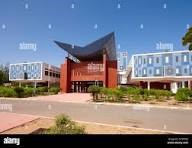The authors trace the evolution of relations between French and African universities since decolonization. Initiated with Senegal in 1957, the cooperation dates back to the 1950s. It now extends to universities in Morocco, Tunisia, South Africa, Uganda, and Mozambique. Exchanges take place within the framework of Erasmus+ at the European level, but the most fertile projects are concluded directly between universities, within the framework of programs such as “Entreprendre en Afrique” and projects such as “DISCOM”. These initiatives adopt global approaches integrating collaborative research and educational innovation. They are mainly intended to promote the creation of enterprises by African youth in order to better exploit local resources and develop their skills in the trades sought by international investors. Another priority of the cooperation is to train Africans in specialties that contribute to the achievement of the Sustainable Development Goals (SDGs), including SDG 1 (“No poverty”), SDG 2 (“Zero hunger”), SDG 5 (Gender equality), SDG 8 (Decent work and economic growth), SDG 10 (Reduced inequalities and social inclusion) and SDG 13 (Climate action). Cooperation is thus put in place to help Africa achieve the objectives of local development plans, as in the case of Senegal, with the Plan Sénégal Émergent (PSE) which aims in its Axis 1 (the structural transformation of the economy and growth) and its Axis 2 (the improvement of human capital, social protection, and sustainable development). Cooperation is generally based on project management involving all stakeholders, adapted to the local context and governed by balanced and proactive governance. The authors observe that, despite the health, security, and economic crises, North-South cooperation is developing, particularly under the aegis of the Agence Universitaire de la Francophonie (AUF), whose objective is to promote training in higher education through apprenticeship and professional integration.
The authors are teacher-researchers who have completed their studies in France and are engaged in research and teaching in African countries.
Jean-Jacques Pluchart


